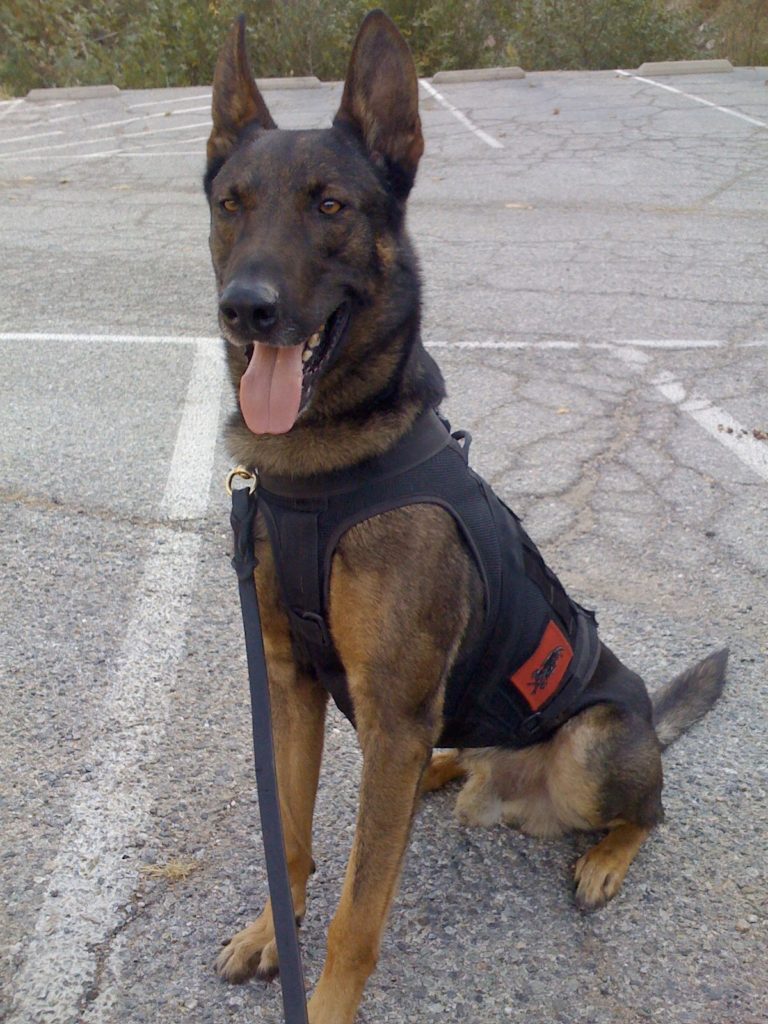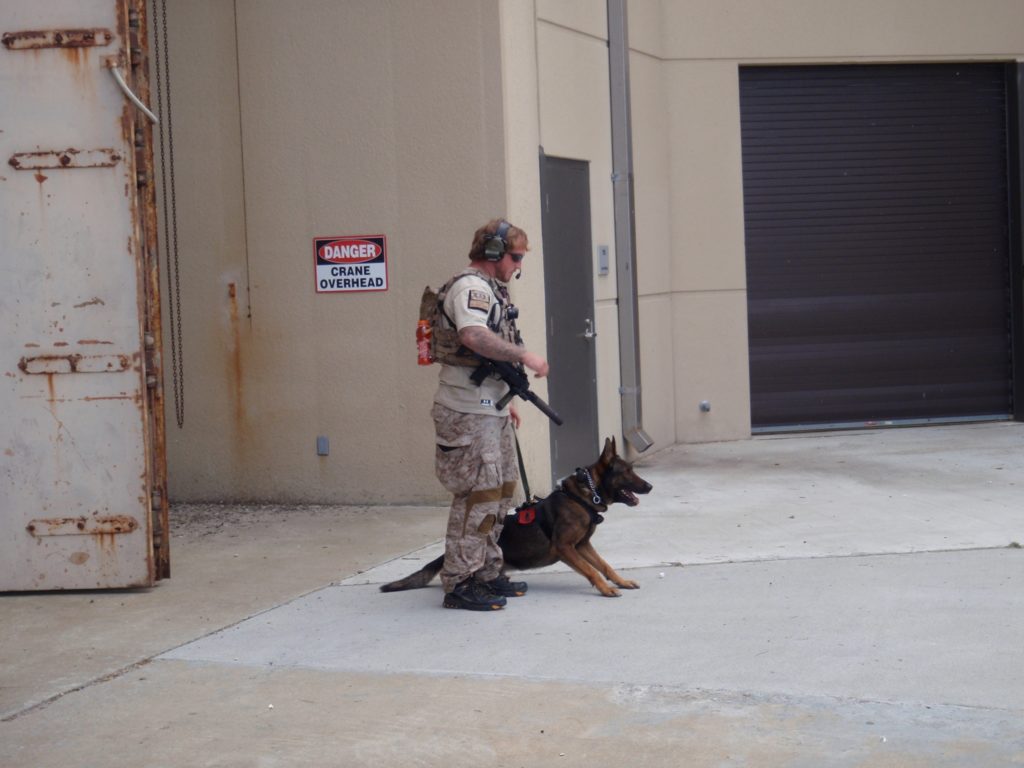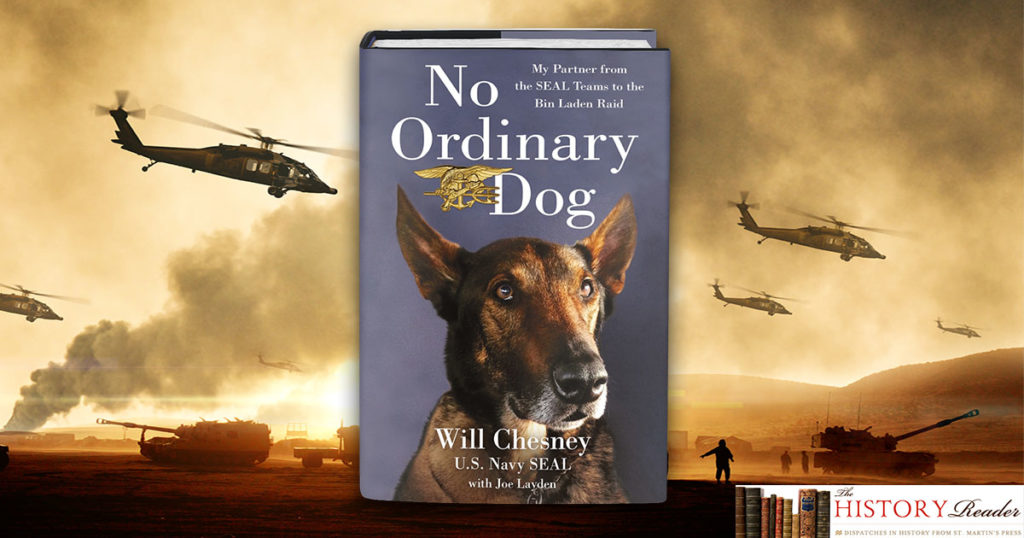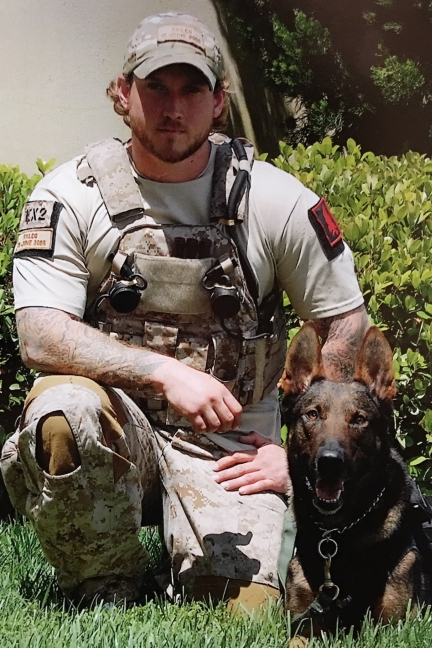by Will Chesney with Joe Layden
No Ordinary Dog is the powerful true story of a SEAL Team Operator and military dog handler, and the dog that saved his life. Read on for Will Chesney’s introduction to his canine companion, Cairo.
This may not be quite the story you are expecting. I might as well make that clear from the outset.
I served thirteen years in the U.S. Navy, including eleven as a SEAL, participating in countless operations and missions as part of the post-9/11 war on terrorism. As a member of SEAL team (redacted) I was on the ground in Pakistan in the spring of 2011, when the highest of high-value targets, Osama bin Laden, was shot and killed. So it’s fair to say that I have seen some shit. But that is only part of the story here, and not the most important part.
You see, while I have had the privilege of serving alongside some of the bravest and best men you could ever hope to meet, I also had the distinct honor of working and living with an unusual and unsung hero whose role in modern warfare—specifically counterterrorism—is hard to comprehend. Unless, of course, you served with him or one of his fellow four-legged warriors.
I grew up with dogs, had always been a dog lover, but I had no idea of the extent to which canines had been incorporated into the military until I became a SEAL and began to hear the stories. I remember walking into a training room once, early in my tenure, and hearing the following directive:
“Raise your hand if your life has ever been saved by a dog.”
Without hesitation, roughly 90 percent of the men in the room lifted their arms. They did not laugh. They did not smile. This was serious, earnest business.
A dog can save your life? It sure as hell can. In my case, many times over. Both on and off the battlefield.
This is my story, but it is also the story of one of those military working dogs, or MWDs (more accurately, he was part of a particularly advanced subset of MWDs known as combat assault dogs, or CADs; and he was the most famous of them all, thanks to his participation in the raid on bin Laden’s compound), a canine SEAL named Cairo, a seventy-pound Belgian Malinois who jumped out of planes, fast-roped out of helicopters, traversed streams and rivers, sniffed out roadside IEDs, and disarmed—literally, in some cases—insurgents. In short, he did everything expected of his human counterparts, and he did it with unblinking loyalty and unwavering courage. I would have taken a bullet for him, and he did in fact take one for me. So this is his book as much as it is mine. Maybe more.

I first met Cairo in the summer of 2008. I’d been in the navy for six years by that time, almost all of it as a SEAL, and had been through multiple deployments, most recently to Iraq. I was stationed in Virginia, satisfied with my work, and not really looking for any big changes. But when I was introduced to the canine program, it immediately caught my interest. I had Rottweilers and Pitbulls as a kid, but had never bothered to do any training with them. They were pets and companions, not working dogs. Fortunately, in those early days of MWDs being incorporated into Special Operations, experience was not a hard-core prerequisite for becoming a dog handler; all you had to do was express an interest in the job, and suddenly there you were, attached 24-7 to a magnificent Malinois (German shepherds, Dutch shepherds, and Labrador retrievers have also been used as MWDs, but the Malinois—basically a smaller, leaner, more agile version of the shepherd—is the ideal combat assault dog).
Not everyone is a dog person—I think sometimes you are either born with that trait or you are not—and not every SEAL wants to babysit an animal both at home and on deployment. My fellow SEALs were all happy to have Cairo out in front of us when we approached a quiet compound in the middle of the night, unsure of whether the perimeter was lined with explosives or how many people were lying in wait. And when not on the job, he was the sort of dog—friendly, playful—that encouraged human interaction; simply put, just about everyone on the team loved him.
But to take on the burden of being a dog’s handler? That was left to someone who really wanted the job. Someone who understood and embraced the designation.

That was me. Cairo was my dog. And I was his dad. I don’t use that term euphemistically. The relationship between a handler and a canine SEAL is profound and intimate. It goes well beyond friendship and the usual ties that bind man to dog. The training is experiential and all-encompassing, around-the-clock immersion designed to foster not just expertise but an attachment of uncommon depth and complexity.
Anyone who has ever shared his life with a dog understands the symbiotic nature of the relationship—how a dog relies on his master for sustenance and shelter, and responds with love and loyalty so unconditional that it can take your breath away. Well, take that relationship and multiply it tenfold, and then factor in the almost incomprehensible bond that is forged when a dog puts his life on the line for you and your brothers, every single day, and you get an idea of what it was like for Cairo and me—and indeed for almost anyone who is fortunate enough to be the handler of a canine SEAL.


Will Chesney served in the United States Naval Special Warfare Development Group as an operator and dog handler. He participated in Operation Neptune Spear, which resulted in the death of Osama bin Laden. Chesney received a Silver Star and a Purple Heart, and now helps veterans who have suffered traumatic brain injury.
Joe Layden is an award-winning journalist and writer. His books include the New York Times bestseller As You Wish: Inconceivable Tales from the Making of the Princess Bride.
